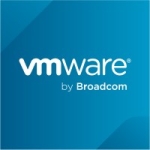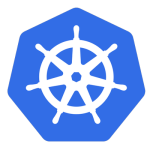What is our primary use case?
I have a total of around four years of experience in multiple clouds, especially in
AWS, and many times I used
Amazon EKS for our multiple products and projects.
In our environment, we already have all the other infrastructure and services running on AWS, so we benefit from using Amazon EKS because the other services can easily communicate with it. For example, some of our services need to access S3, and our application objects reside there, so we can easily integrate them with Amazon EKS. We also use IAM rules for integration to provide granular access to resources. As per your question, in our environment, most of our clients and resources reside in AWS, which is why we prefer to deploy other services there, as most of our development environment uses Lightsail. This gives us an edge, allowing us to easily move from development to staging or production environments within the same cloud.
What is most valuable?
When we compare other clouds, AWS has an edge among all the crowded options right now. My observations and reviews with AWS also affirm this because it provides a user-friendly experience and offers many options that other clouds do not provide. When my team and I work with AWS, we always feel comfortable. I do not know the exact reason behind it; maybe we have a lot of previous experience, and we are familiar with AWS. That is why other reviews from my colleagues at previous companies indicate that AWS has some edge compared to other clouds.
I would recommend Amazon EKS to other organizations because it provides simple configuration, easy management, safety, granular access, and vast monitoring capabilities where we can easily monitor our clusters using CloudWatch. However, I would think about a clearer dashboard for Amazon EKS, but overall, I think it is sufficient.
What needs improvement?
When we need to deploy the application, we require a large number of instances. Therefore, I hope and believe I will not face out-of-capacity issues in AWS, especially since I have not yet experienced traffic around 50,000 plus, and I believe I will not face such issues in Amazon EKS the next time we deploy with a large number of nodes and worker nodes.
Additionally, the upgradation process of Kubernetes rapidly rolls out new releases, so it should be easier for our production environment to upgrade Amazon EKS clusters. Sometimes when we are going to upgrade the Amazon EKS cluster, we need to check the backups, and we should have options to export our configurations, such as exporting the configuration to S3 or somewhere else to find backups. Other tools, such as Velero, provide this functionality to back up configurations, so I hope this backup process will help us fulfill our backup policies and other requirements.
For the pricing aspect of Amazon EKS, one specific issue arises when we deploy applications, especially as we provide SaaS services to our clients. We would like to know the cost for each customer, but we face issues because AWS charges $70 USD for the Amazon EKS engine. We struggle to divide the worker nodes' fees and the engine cost among clients, as some users have low traffic and visibility while others have large amounts of visibility and traffic. Thus, we face cost-related issues when running multiple customers on the same Amazon EKS cluster.
For how long have I used the solution?
I have been using the solution for approximately four years.
What was my experience with deployment of the solution?
The initial setup and deployment of Amazon EKS was straightforward; I easily provisioned the correct cluster. Sometimes, due to the depreciation of the AMIs, AWS provides warnings to use the latest version of the EKS AMIs because some of our scripts or
Terraform scripts are old. I think it is good practice for AWS to provide messages to the console to upgrade your cluster, but overall, my experience with provisioning the Amazon EKS cluster is good, and I highly appreciate it.
What do I think about the stability of the solution?
I have not faced any issues that require escalation to customer support, and until today, I do not feel any need to escalate anything to the support team. I am happy with the service.
What do I think about the scalability of the solution?
To meet our requirements, our services need a large amount of CPU and memory, so we need high-spec machines. When we deploy applications, we require a large number of instances.
How are customer service and support?
I have not faced any issues that require escalation to customer support, and until today, I do not feel any need to escalate anything to the support team. I am happy with the service.
How would you rate customer service and support?
Which solution did I use previously and why did I switch?
I also work with other clouds, such as
Oracle Cloud, but I feel comfortable with AWS because I faced some issues, such as out of capacity when we designed the infrastructure for our large traffic.
How was the initial setup?
The initial setup and deployment of Amazon EKS was straightforward; I easily provisioned the correct cluster. Sometimes, due to the depreciation of the AMIs, AWS provides warnings to use the latest version of the EKS AMIs because some of our scripts or
Terraform scripts are old. I think it is good practice for AWS to provide messages to the console to upgrade your cluster, but overall, my experience with provisioning the Amazon EKS cluster is good, and I highly appreciate it.
What about the implementation team?
I used Amazon EKS through its console rather than through the
AWS Marketplace.
What was our ROI?
I have not checked the pricing yet, but I will look into it to see if EKS brings ROI or a return on investment for us.
What other advice do I have?
Regarding self-healing nodes in Amazon EKS, I have not worked on that self-healing feature.
For automated patching in Amazon EKS, I have not used that feature.
Regarding disadvantages of Amazon EKS compared to competitors in the market, I think every cloud provider has the same Kubernetes engine and worker nodes. However, I believe AWS provides a more user-friendly environment, which is why many of our customers are trying to deploy their infrastructure or applications on AWS. I do not think there is any specific reason not to prefer Amazon EKS.
I have not integrated IAM tools with Amazon EKS yet, but my other teams have. I think they used Okta, but I'm not certain about it. I have some demos from a long time ago, but I think Okta is for SSO.
On a scale of one to ten, I rate Amazon EKS a nine out of ten.
Which deployment model are you using for this solution?
Private Cloud
If public cloud, private cloud, or hybrid cloud, which cloud provider do you use?
Amazon Web Services (AWS)
Disclosure: My company does not have a business relationship with this vendor other than being a customer.



















